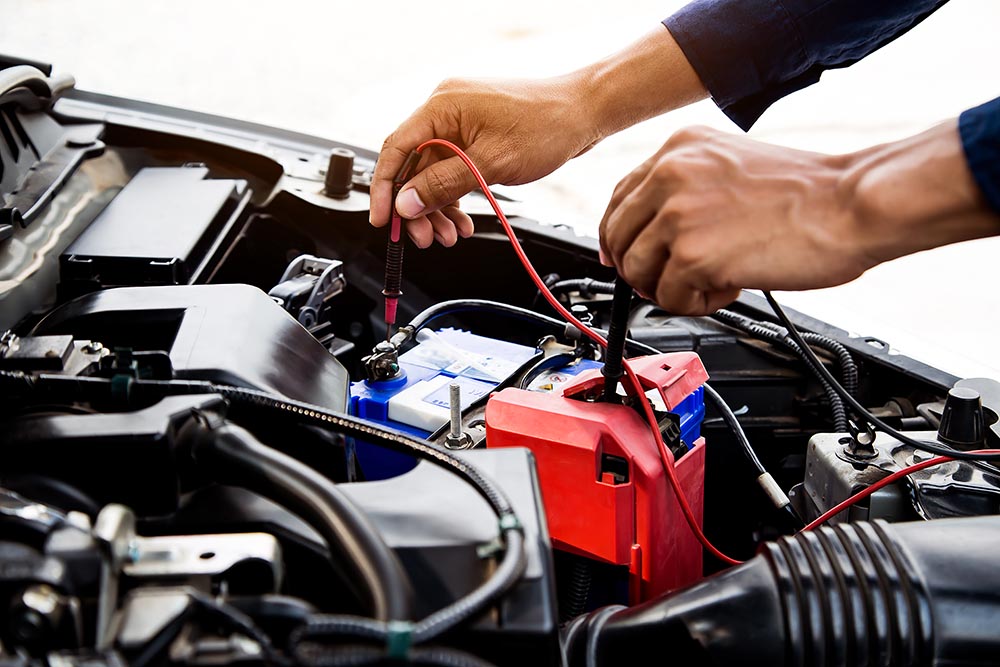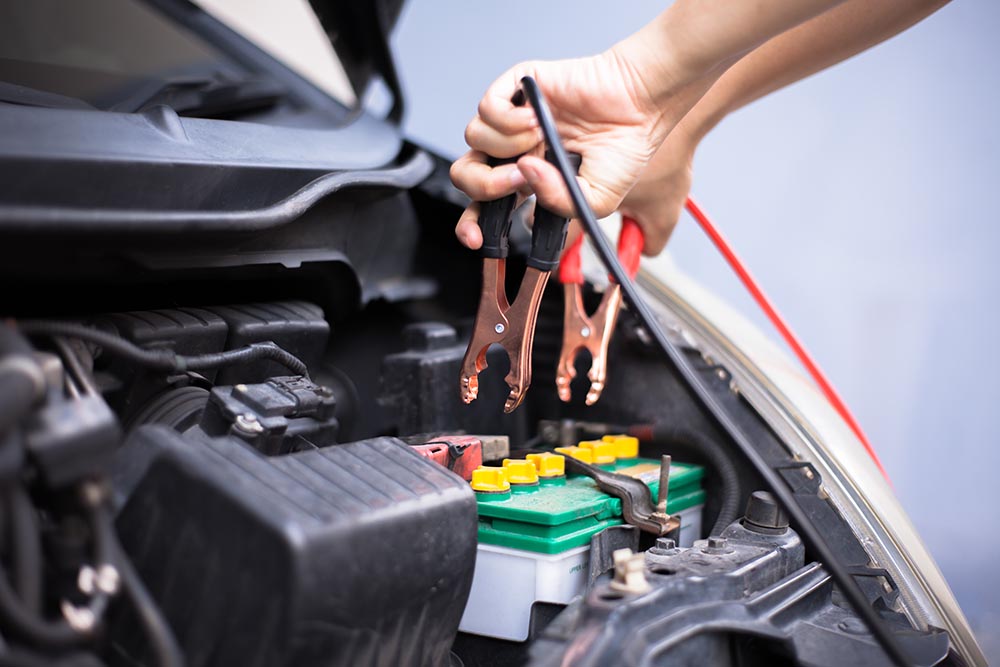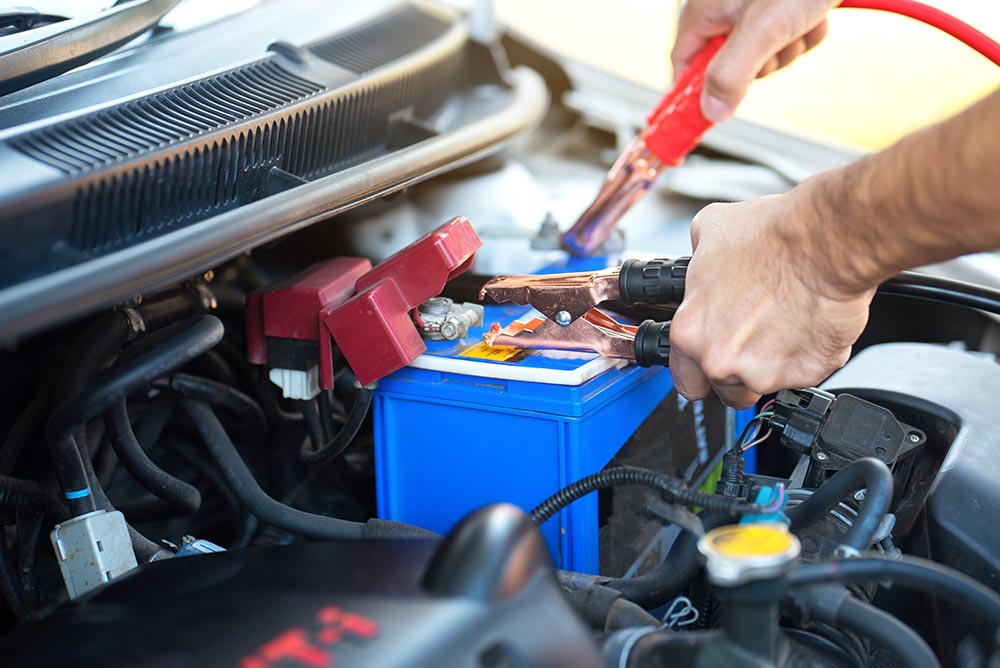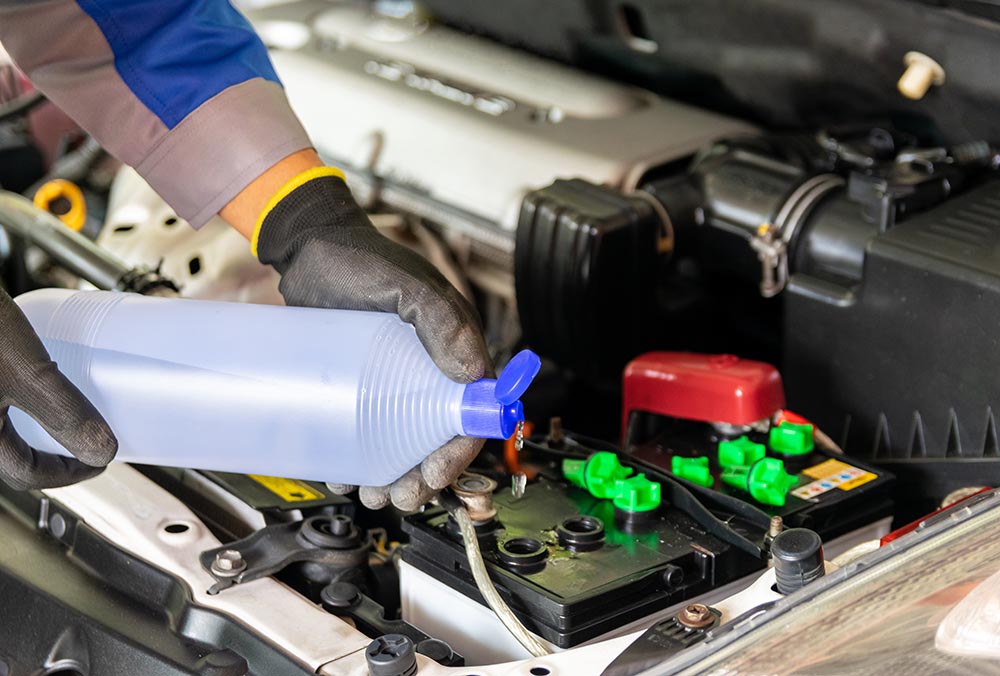
The car battery is indeed the very heart of your vehicle. It’s not just vital for powering up the engine itself, but without it, you cannot use any of the electrical components in your car either. In other words, without a functional car battery, you will be going absolutely nowhere, and in silence at that.

What is the normal life of a car battery?
Depending on your driving habits, the weather conditions in your home country, and the type of vehicle you drive, the life expectancy of your car battery will typically be between four and six years. So, if you drive safely and keep your car in relative condition (including regular check-ups at your local garage), you should be able to get away without having to replace your battery for 6 years.
How Does a Car Batter Function?
To you, starting a car is a simple process: you turn the key or press a button and then voila! You are up and running. Of course, what goes on underneath the hood is a different story entirely.
When you start the ignition, it sends a signal to the battery that starts a chain chemical reaction inside the little black box that is your car’s battery.
The reaction then turns into electrical energy which kick-starts your motor into action and the engine begins churning away.
With a dead battery, the lights might flicker, but the engine will not have enough energy to turn over.
How Often Do You Need to Replace Your Car Battery?
Whilst we have mentioned that a car battery can last up to six years, the more average frequency for needing to replace a car batter is four years.
For most vehicles driving in colder conditions for half of the year, the lifespan of a batter is shorter.
Once you hit the three-year mark, it is time to start paying close attention to the way that your vehicle operates. As you approach the end of your batteries life, you want to catch any issues before it can affect the health of your vehicle any further than is necessary.

7 Tell-Tale Signs Your Car Battery is on its Way Out
Now let’s look at some of the key warning signs that indicate your car battery is likely on its last legs. You should also pay attention to the way that your vehicle reacts when you are starting it up. Having driven the vehicle for a certain amount of time, you’ll get a feel for when something isn’t quite right…
1 – Your Engine is Slow to Start
As the components inside your car battery begin to wear out and become less effective over time, you will notice it takes longer for the engine to turn over when starting the ignition. If your car is slow to start, then there’s a good chance that your car batter is about to snuff it.
2 – Dimmer Lights and Electrical Faults
Again, your car batter is the source of all power that keeps the electronics in your vehicle functioning, including your car lights, and your stereo. If the battery is on its way out and losing charge, it will begin to struggle with keeping these functions at full power. Remember, the more things plugged into your car whilst driving (i.e., phone chargers), the faster your battery will die.
3 – Your ‘Check Engine’ Light is on
Another tell-tale sign that the battery is misbehaving is if your ‘check engine’ light has come on. It might be another issue entirely, but often it means that your battery is running out of oomph.
4 – A Bad Smell Keeps Wafting Your Way
Any damage to the battery, or an internal short, can cause the battery to start leaking gas. If you get the smell of rotten eggs wafting throughout your car, it might not be your mate, so be careful before pointing fingers! Instead, check the hood as the battery may well be the culprit. In this case, get your car checked out ASAP, and have the battery replaced if recommended as necessary.
5 – Connectors are Corroded
Is there a white, ashy substance showing up on the metal components of your car battery? If so, then it is likely that you have a corrosion issue. Any corroded terminals (i.e., the + and – connections on the top of your battery), can lead to voltage issues and thus hinder the vehicle ignition process.
6 – Your Car Battery Case is Misshapen
If your vehicle is regularly exposed to either extreme heat, or intense cold, then it can cause the car battery itself to swell and crack. If you notice that your battery is anything but rectangular, then it’s definitely time to get it replaced before any more damage occurs.
7 – It’s an Old Car Battery
Ask yourself, when was the last time that your car battery was actually replaced? Did you purchase it with an existing battery? Or did you replace it right away? In any case, remember that a car battery will typically last between three and five years. So, if your battery is erring on the old side, then it might be time to bite the bullet and pop in a fresh one.

What Causes a Car Battery to Perish Faster?
Your car battery will remain charged by simply reusing the energy that is created via driving the vehicle. If you don’t use your car often and it sits for long periods of time, then you will be running the risk of killing your battery faster. In the same breath, making too many short trips can put a strain on the system as well.
Oh! And never forget to turn your lights off. If your car has an automatic lights feature, even better!
How Much Does a Car Battery Replacement Cost?
Replacing your car battery isn’t the cheapest thing to do, but fortunately, you shouldn’t have to do it all that often. An average car battery can begin anywhere from $80, up to the $150 mark. Whereas a premium car battery can go up to $200 and beyond!
Bear in mind that the cost might not always include the labour. Some reputable mechanics may charge around the $70 mark just to pop it in.
Conclusion
Whether you aren’t quite sure if your batter is due to be replaced, or you are ready for an upgrade and are looking for a reputable dealer, check out G7 Battery. They have a range of quality products that will keep your vehicle juiced and on the road for longer!

